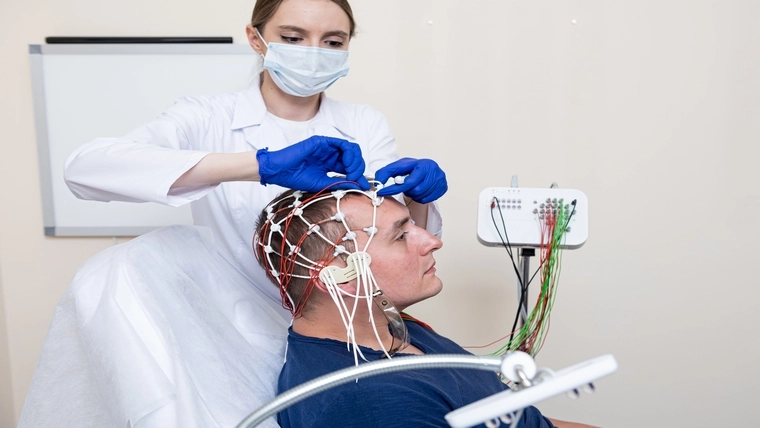
What is the Department of Neurology and What Diseases Does It Cover?
The neurology department is a medical unit that diagnoses and treats diseases related to the brain, spinal cord, nerves and muscles. Neurological diseases include migraine, epilepsy, Parkinson's disease, Alzheimer's disease and multiple sclerosis. Neurologists specialize in the diagnosis and treatment of these diseases as well as stroke, peripheral neuropathies and neuromuscular diseases.
About the Department of Neurology
The neurology department is a medical discipline that studies problems in the central and peripheral nervous systems. Neurologists working in this department determine the source of diseases by performing various neurological examinations and tests and apply appropriate treatment methods. Neurology is an important part of modern medicine and early diagnosis and treatment of neurological diseases can greatly improve the quality of life of patients.
Who is a Neurologist and What Are Their Duties?
A neurologist is a medical doctor who is trained in diseases of the nervous system. Their duties include the diagnosis, treatment and management of neurological diseases. Neurologists evaluate patients' symptoms, perform neurological examinations and make diagnoses by ordering the necessary imaging and laboratory tests. They also provide treatment by preparing appropriate treatment plans for patients, such as medication, physical therapy or surgical interventions.
What Diseases Does Neurology Cover?
Neurology is a broad medical field that covers many diseases related to the brain, spinal cord, nerves, and muscles. Some of these diseases include:
- Migraines and Other Headaches: Various types of headaches fall under the purview of neurology, including chronic headaches, migraines, tension-type headaches, and cluster headaches.
- Epilepsy: A disease characterized by seizures caused by abnormal electrical activity in the brain.
- Parkinson's Disease: It is a disease that occurs with the loss of dopamine-producing cells in the brain and manifests itself with symptoms such as tremors, muscle stiffness, and slow movement.
- Alzheimer's Disease and Other Types of Dementia: These are diseases that cause progressive deterioration in the areas of the brain related to memory and other mental functions.
- Multiple Sclerosis (MS): It is an autoimmune disease that occurs due to damage to the myelin sheath in the central nervous system, causing deterioration in neurological functions.
- Stroke: A condition that occurs as a result of an interruption of blood flow to a part of the brain or a cerebral hemorrhage, causing brain cells to die.
- Peripheral Neuropathies: These are diseases characterized by symptoms such as numbness, tingling, pain and muscle weakness that occur as a result of nerve damage.
- Neuromuscular Diseases: Diseases that affect the functioning of muscles and nerves. These include amyotrophic lateral sclerosis (ALS), myasthenia gravis, and muscular dystrophies.
- Sleep Disorders: Narcolepsy, sleep apnea and other sleep disorders are evaluated and treated by neurology.
- Movement Disorders: Movement disorders such as dystonia, essential tremor, and tic disorders also fall under the scope of neurology.
- Neurodegenerative Diseases: Diseases such as Huntington's disease and amyotrophic lateral sclerosis (ALS) lead to the loss of nerve cells and worsening neurological function over time.
These diseases are diagnosed by neurologists through various examinations and tests and managed with appropriate treatment methods. Early diagnosis and treatment of neurological diseases can greatly improve the quality of life of patients.
What Are Neurology Examinations?
Neurological exams are tests used to evaluate a patient's nervous system. The most common neurological exams include:
- Reflex tests
- Assessment of muscle strength and tone
- Balance and coordination tests
- Sensory examination
- Eye movements and pupillary reactions are present.
These examinations help the neurologist understand the patient's neurological condition and enable him to make a correct diagnosis.
What Methods Are Used in Neurology Treatments?
Various methods are used in the treatment of neurological diseases. These include drug therapy, physical therapy, surgical interventions and rehabilitation programs. Drug therapy is used to relieve the symptoms of neurological diseases and slow the progression of the disease. Physical therapy and rehabilitation aim to increase the patients' muscle strength, mobility and quality of life. Surgical interventions are necessary to correct or manage some neurological disorders.
When Should You Go to the Neurology Department?
Conditions that require a referral to the neurology department include symptoms such as persistent headaches, dizziness, muscle weakness, numbness or tingling, movement disorders, and memory loss. In addition, emergency situations such as stroke, epileptic seizures, or loss of consciousness also require a referral to a neurologist.
What is Done During a Neurology Examination?
During a neurological exam, the neurologist will thoroughly review the patient's medical history and symptoms. Then, neurological exams and tests will be performed to evaluate nervous system functions. If necessary, imaging tests (MRI, CT scan) or electrophysiological tests (EEG, EMG) will be requested. This process is critical in diagnosing the disease and determining the appropriate treatment plan.









